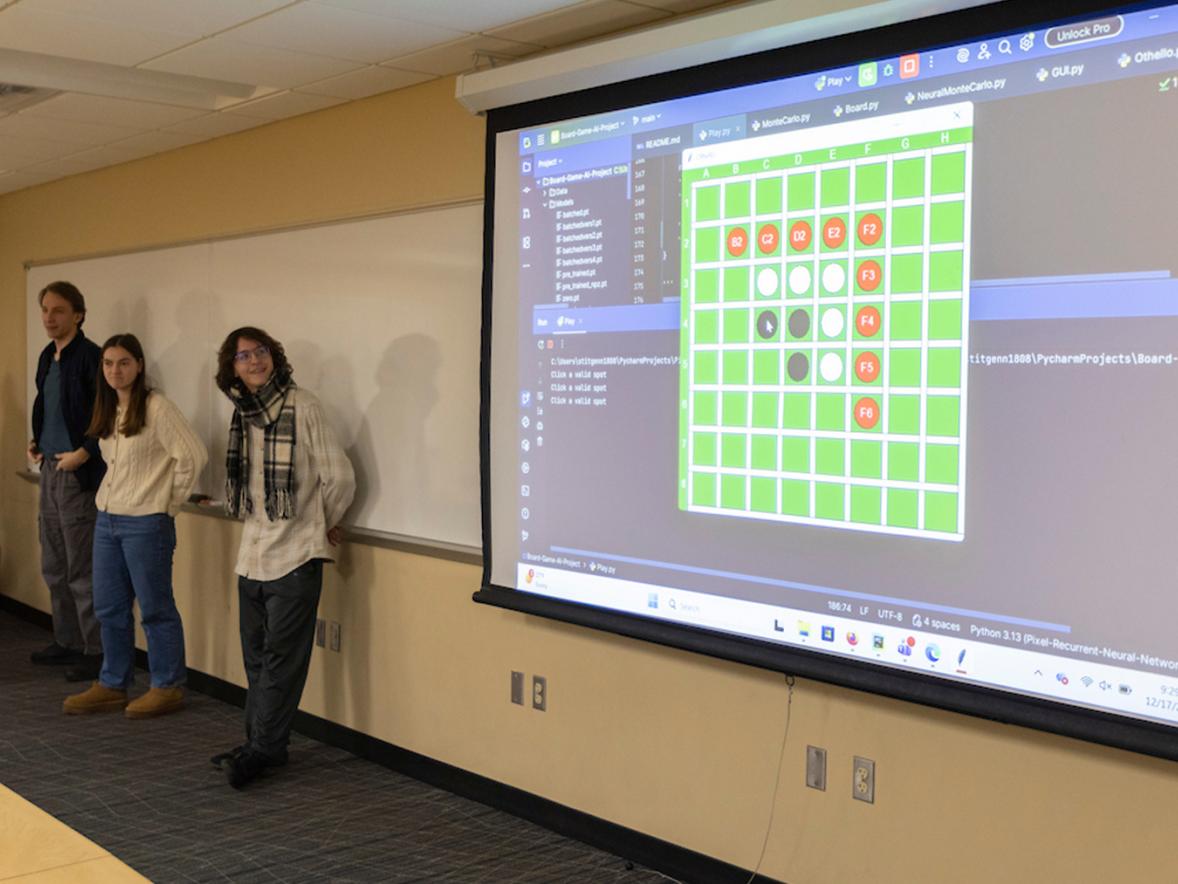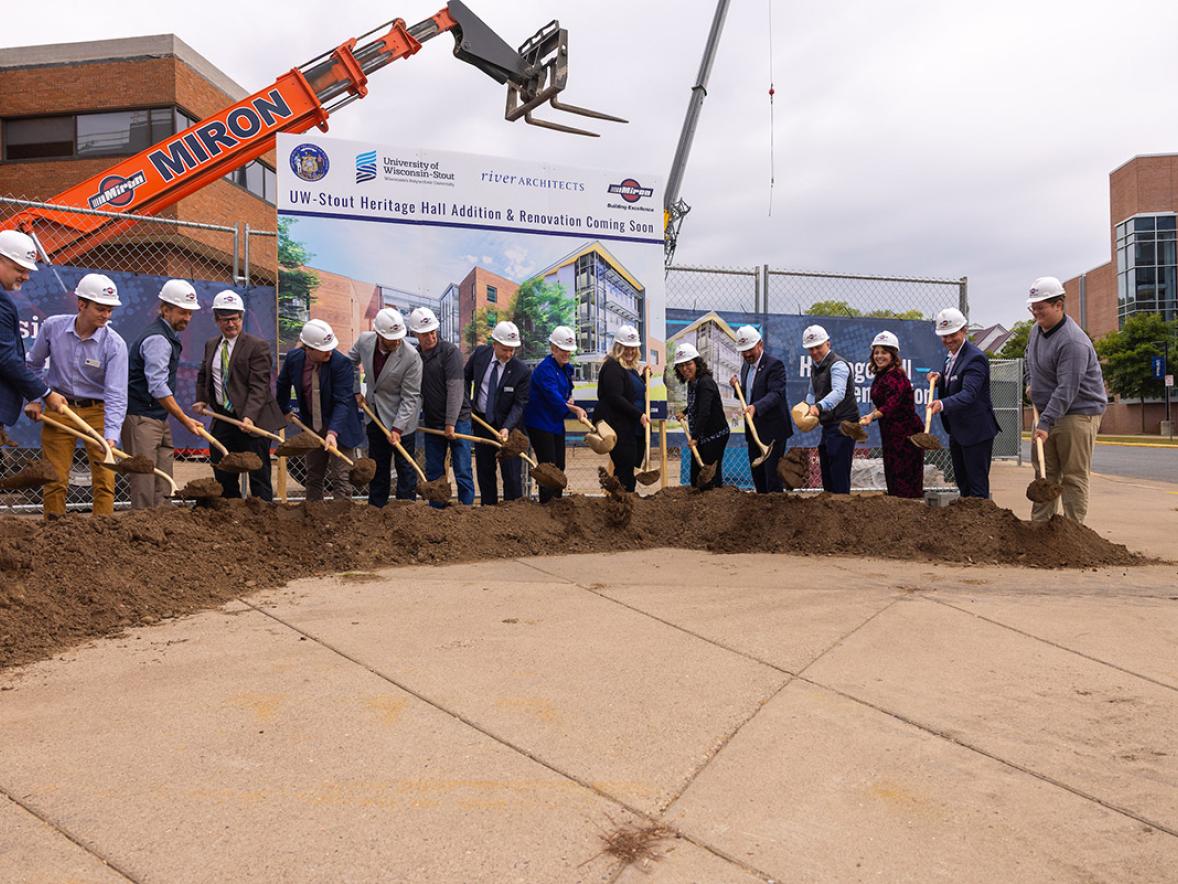Eleven students from universities across the nation conducted research this summer to understand and improve the health of the Red Cedar watershed, which is affected by eutrophication – phosphorus and nitrogen pollution, causing blue-green algae blooms and dissolved oxygen levels.
UW-Stout professors led the LAKES REU students in their research across anthropology, psychology, biology and engineering disciplines.
The LAKES students and mentors invite community members to an open house from 5 to 8 p.m. on Thursday, Aug. 11, at the Raw Deal, 603 Broadway St., Menomonie. Students will present their research and join in conversations on challenges and opportunities within the watershed.
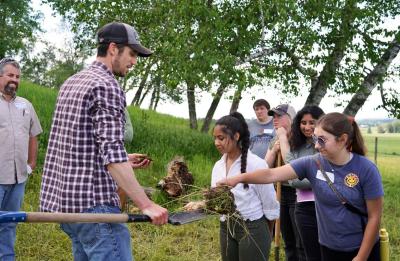
LAKES student Abby Cullen is an environmental science senior at UW-Stout and Menomonie community member.
“The issues facing Lake Menomin have caught my attention and curiosity. I am mainly interested in the effects agriculture, from conventional to regenerative, has on land, water and wildlife,” Cullen said. “I am particularly interested in entomology and pollinator ecology, both in manmade landscapes and natural landscapes.”
She has studied why farmers do or do not implement certain management practices, such as no-till and cover crops, and sifted through data to explore land management practices and how they affect soil and nutrient runoff.
“My research experience has been very eye-opening. Working with qualitative data is very different from quantitative data, and it has been a great, new experience for me,” Cullen said.
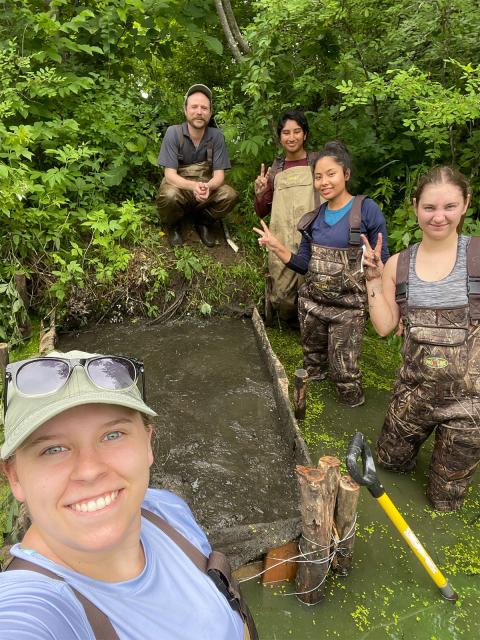
The Red Cedar watershed is nearly 1,900 square miles and includes parts of Barron, Burnett, Chippewa, Dunn, Pierce, Polk, Rusk, Sawyer, St. Croix and Washburn counties. It features approximately 40,000 acres of open water and approximately 4,900 miles of rivers and streams.
UW-Madison environmental science senior Laura Flucke agrees and enjoys collaborating with students across various fields.
“LAKES allows me to gain interdisciplinary problem-solving skills that will improve the way I understand and address problems in the future. I have received valuable insight into how scientific research is conducted, as well as improved analytical skills, which I can use regardless of career,” Flucke said.
Flucke, of Overland Park, Kan., is also studying cartography and geographic information systems. Her interests are centered around water quality and freshwater ecosystems, particularly relating to nutrient pollution and harmful algal blooms, she said.
Her LAKES research focuses on the nutrient runoff from croplands that impacts the quality of the watershed.
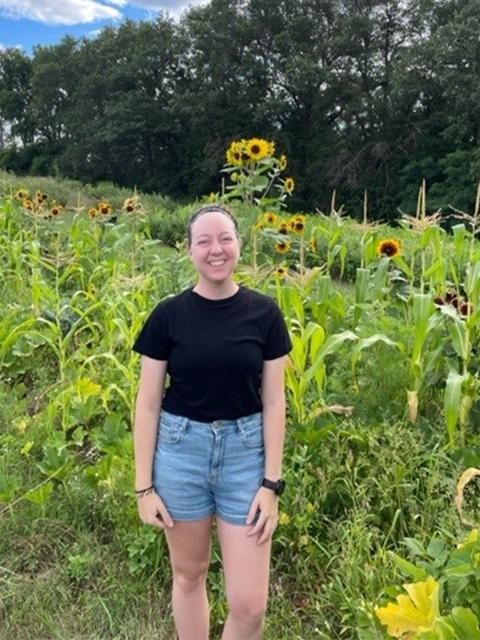
“Using GIS, I have identified croplands that are more prone to nutrient runoff, due to variables such as slope of the land. Conversion of these croplands to pasture could reduce nutrient runoff in areas that would make the greatest impact,” Flucke said.
Cullen hopes that open house attendees will understand the complexities of eutrophication and the large-scale, community effort it will take to remediate nutrient pollution in Lake Menomin.
While she sees flaws in the current agricultural system, from an ecological and human perspective, she believes the general public often blames agriculture alone.
“Although it plays a part, there are many factors that affect eutrophication, including the geomorphic features of the watershed, lawn fertilization and leaking septic tanks,” Cullen said. “There is no simple solution. If we want to see real change in the agricultural system today, there needs to be increased assistance and funding for farmers across the board. There are changes that can be made that benefit farmers, the land and the watershed.”
Cullen will graduate in December and is applying to graduate school and exploring job options. She plans to earn her graduate degree in entomology and study pollinator ecology. She feels that the undergraduate research experience is valuable for her future endeavors.
LAKES REU 2022 students are from universities across nine states. The program was founded at UW-Stout in 2014. It is funded by the National Science Foundation and by a recent $29,382 grant from the Freshwater Collaborative of Wisconsin, which works to enhance its water-related academic programs.






